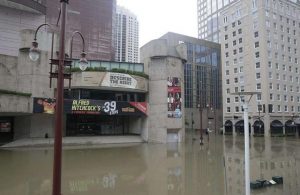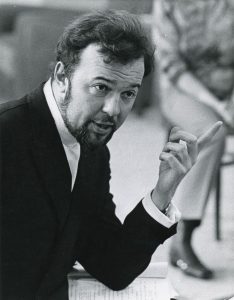Vancouver Greenroom: theatre is community
FALL, AND THE BIRDS ARE FLYING…EAST?
East is the direction that Vancouver artists fly when they’re getting national recognition, so it’s a very good thing that actor Alexandra Lainfiesta, writer Crystal Verge, and multi-tasker Christine Quintana are all winging that way this autumn.
Just this spring, Lainfiesta won the Jessie for Lead Actress (Small Theatre) for her work in Solo Collective’s production of Katie Hoffman’s Green Lake. Now, she’s at Ontario’s Stratford Festival as one of only seven actors selected for the Birmingham Conservatory.
Founded in 1998 and currently headed by actor Stephen Ouimette, the Conservatory’s mandate is “to nurture young actors for a future in classical theatre.” Conservatory members also perform on Stratford stages and Lainfiesta expects to find out later this month how she will be cast in the upcoming season.
Meanwhile, playwright Verge is in Ottawa, where the Great Canadian Theatre Company is workshopping her script For the Love of Gracie. In Verge’s story, a social work student’s theories shatter when she meets a smart, challenging inmate named Gracie.
That workshop will culminate in a public reading this Saturday, September 16, from 2:00 to 4:30.
And Quintana, who works as a playwright, dramaturg, actor, and artistic producer, will soon by flying back and forth between Vancouver and Toronto, where she has become the 2017/2018 Urjo Kareda Emerging Artist Resident at Tarragon Theatre. She will be writing two new works and exploring the reasons people go to the theatre.
On Facebook, Quintana declared her faithfulness to Vancouver: “I am NOT moving away, okay?”
THIS JUST IN: I’ve just found out that Vancouver favourite Anton Lipovetsky is also a member of the Birmingham Conservatory at Stratford this year. Go Vancouver! Two out of seven!

Houston’s Alley Theatre, a cornerstone of the local community, has been badly damaged by hurricane Harvey.
THE WORST POSSIBLE THING
“What starts off as a sensation of the nose and throat soon turns into a full-body experience — a dizzying mixture of rotting wood, rotting paper, infested carpet, swamp-soaked chairs, sewage, bacteria and humidity.” That’s how Wei-Huan Chen of the Houston Chronicle describes his tour of the city’s Alley Theatre after hurricane Harvey.
The Alley’s Dean Gladden told Chen, “As a managing director, you always think of the worst possible thing that can happen. This is the worst possible thing.”
The Alley Theatre has premiered works by Paula Vogel, Tony Kushner, and Rajiv Joseph, and is home to a renowned resident company. Its upstairs venue, the Hubbard Theatre, is not severely affected, bit its underground performance space, the 310-seat Neuhaus Theatre, is badly damaged. Two years ago, the space went through a $46.5 million renovation.
This piece from the New York Times explores the shock felt by artists and talks about how they recovered their will to go on.
Here, HowlRound explores the many ways that Harvey has hit Houston’s smaller companies—including lost performance and fundraising revenue.
THE TEARS OF THE WORLD ARE A CONSTANT QUANTITY
Sir Peter Hall, who introduced Samuel Beckett’s Waiting for Godot to the English-speaking world, died of pneumonia on Monday, September 11, at University College Hospital in London. He was 86.
Hall was 24 when he directed Godot, which includes the character Pozzo’s line about the tears of the world. And he was 29 when he founded the Royal Shakespeare Company. He directed London’s first production of Tennessee Williams’s Cat on a Hot Tin Roof, and the premieres of a number of Harold Pinter’s plays, notably The Homecoming, No Man’s Land, and Betrayal. He also helmed the first production of Peter Schaffer’s Amadeus, and served as artistic director at both the National Theatre and the Glyndebourne Opera.
This piece from The New York Times highlights five productions, which, according to that paper, define the director’s legacy. And this feature from The Guardian summarizes his life in pictures.
Mark Shenton argues in The Stage, that Hall’s fierce defence of arts funding during the 80s, when the Conservatives were slashing it, may be one of his most important contributions. Margaret Thatcher once asked, “Why do we have to keep giving money to that awful man Peter Hall?







0 Comments